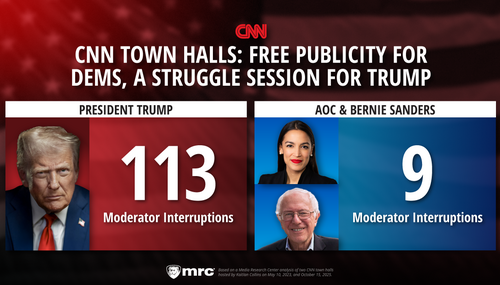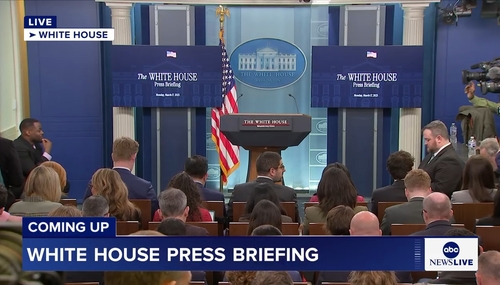
New York Times correspondent Thomas Friedman is clearly unhappy about the Tea Party, so much so that he considers the movement "not that important."
Instead, he envisions another group, "which stretches from centrist Republicans to independents right through to centrist Democrats," sitting silently out there in America waiting for the right leader to emerge.
So wrote Friedman Wednesday in his "The Tea Kettle Movement":
The Tea Party that has gotten all the attention, the amorphous, self-generated protest against the growth in government and the deficit, is what I'd actually call the "Tea Kettle movement" - because all it's doing is letting off steam.
That is not to say that the energy behind it is not authentic (it clearly is) or that it won't be electorally impactful (it clearly might be). But affecting elections and affecting America's future are two different things. Based on all I've heard from this movement, it feels to me like it's all steam and no engine. It has no plan to restore America to greatness.
The Tea Kettle movement can't have a positive impact on the country because it has both misdiagnosed America's main problem and hasn't even offered a credible solution for the problem it has identified. How can you take a movement seriously that says it wants to cut government spending by billions of dollars but won't identify the specific defense programs, Social Security, Medicare or other services it's ready to cut - let alone explain how this will make us more competitive and grow the economy?
Friedman like so many on the left seems ignorant of history, not just the American version but also the world's.
Important political movements on this planet since the dawn of time begin with protest. A small group decides it's being treated unfairly and begins expressing such sentiments. As it grows, those in power become fearful and either implement changes to assuage the anger developing in their population or are eventually overthrown.
If the latter occurs, those doing the conquering don't initially have a clear platform to enact once they attain power. That comes later.
Did our Founding Fathers know what form of government the United States would be when colonists first began protesting the edicts of the King of England? Of course not. That didn't come until years later.
That Friedman and so many media members complaining about the lack of specific ideas in the Tea Party don't understand this is either the height of stupidity or dishonesty.
But Friedman wasn't done, for he next threw out the same tired line about this movement not being credible because it wasn't complaining about out of control spending when George W. Bush was president.
Once again, this is either ignorant or an intentional misrepresentation, as one of the reasons Democrats did so well at the polls in 2006 was because so many of today's Tea Party members refused to vote for Republicans that year.
The anger on the Right was first manifested in an election boycott that continued in 2008 when many conservatives couldn't bring themselves to vote for John McCain.
As such, there was plenty of anger being expressed towards establishment Republicans prior to Barack Obama's inauguration, but it was taking forms that weren't apparent to liberal media elites like Friedman.
That said, having discredited the movement that is currently having more impact on America than the two major parties are, Friedman spoke about another:
The issues that upset the Tea Kettle movement - debt and bloated government - are actually symptoms of our real problem, not causes. They are symptoms of a country in a state of incremental decline and losing its competitive edge, because our politics has become just another form of sports entertainment, our Congress a forum for legalized bribery and our main lawmaking institutions divided by toxic partisanship to the point of paralysis.
The important Tea Party movement, which stretches from centrist Republicans to independents right through to centrist Democrats, understands this at a gut level and is looking for a leader with three characteristics. [...]
Leadership today is about how the U.S. government attracts and educates more of that talent and then enacts the laws, regulations and budgets that empower that talent to take its products and services to scale, sell them around the world - and create good jobs here in the process. Without that, we can't afford the health care or defense we need.
Here's what Friedman believes "the real Tea Party" wants:
To implement it would require us to actually raise some taxes - on, say, gasoline - and cut others - like payroll taxes and corporate taxes. It would require us to overhaul our immigration laws so we can better control our borders, let in more knowledge workers and retain those skilled foreigners going to college here. And it would require us to reduce some services - like Social Security - while expanding others, like education and research for a 21st-century economy.
I'm not kidding. Friedman actually thinks that despite the current economic malaise strangling this nation - 9.6 percent unemployment occurring at the same time the government has exploded in size - there is a groundswell of support for raising some taxes and expanding some services.
Yes, history has certainly shown homo sapiens willing to die for higher taxes!
Methinks Mr. Friedman needs to spend less time in Greenwich Village and Berkeley to test his liberal theory in what know-it-all elites like him call "Flyover Country."
Unfortunately, that will never happen for these folk only care about the opinions of those residing in a handful of places on the coasts.
Maybe they'll broaden their horizons on November 3.




